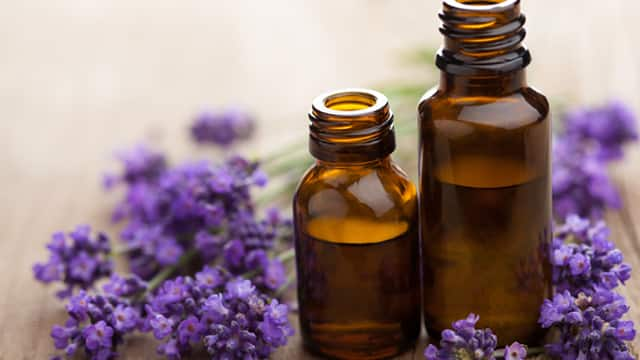What are TMJ disorders?
TMJ, or the temporomandibular joint, is a joint that connects your skull to your jaw, and you have one on either side of your face. TMJ disorders, also known as TMD or just TMJ, occur when you feel pain in your jaw joint and in the muscles that control jaw movement. Though TMJ disorders' specific causes can be tough to pin down, some common ones are stress, genetics, injury, teeth grinding, and arthritis. Symptoms can include pain and tenderness in your jaw and ear, difficulty chewing due to pain, and locking of the joint, making it tough to open and close your mouth.
Luckily, most pain from TMJ disorders is treatable and temporary, with treatments ranging from oral pain relievers and anti-inflammatories to oral splints to physical therapy, and sometimes procedures and surgeries. So, where do essential oils fit into the mix? Before we discuss that, let’s take a look at how TMJ disorders are identified.
How are TMJ Disorders Identified?
As mentioned above, there are several medical treatments for TMJ disorders, depending on your needs. If you think you may have symptoms, your doctor or oral care provider may perform an examination. This can include:
- Listening to and feeling your jaw when you open and close your mouth
- Watching the range of motion in your jaw
- Feeling around your jaw to pinpoint areas of tenderness or pain
From there, your oral care provider or doctor might recommend an MRI, dental X-ray, or CT scan to investigate further and identify the source of your pain. Finally, they’ll recommend a treatment plan based on your needs. Essential oils might be part of this plan.
How do TMJ Essential Oils Help?
Essential oils, or oils extracted from plants, have been used in clinical aromatherapy to treat pain, nausea, anxiety, depression, stress, and insomnia, according to a 2020 article in the Elsevier Public Health Emergency Collection Journal. While they’ve been used for thousands of years because of their scents and properties, they’re not a medicinal cure-all—the Food and Drug Administration classifies essential oils as cosmetics because they are not drugs for treating or preventing disease, and thus, they are unregulated.
However, there is evidence that essential oils, such as lavender, have been used to reduce anxiety and sensations of pain. A 2016 study in the Hindawi Journal looked at patients with chronic neck pain, one group receiving lavender acupressure and acupoint stimulation sessions in addition to conventional treatment, the other receiving just conventional treatment. The results indicated that the group receiving lavender acupressure had a greater amount of reduced stress compared to the group that did not receive it, indicating that aromatherapy is a feasible option for a complementary treatment to conventional treatment.
As the above study explains, when it comes to incorporating homeopathy into TMJ disorders' pain management, evidence suggests that essential oils can be effective in symptom management when used in tandem with other clinically-proven methods. Penn State Hershey lists homeopathic oils as a complementary option to your overall TMJ disorder pain relief management. However, they state that few studies have examined the effectiveness of these oils. Further, a 2020 study from the Journal of Craniomandibular & Sleep Practice found that “aromatherapy massage with lavender oil was effective in the management of painful TMD conditions and limited mouth opening.” So, while a few recent studies have indicated that essential oils could be a valuable addition to your TMJ disorder treatment plan, there’s still research needed to comprehensively understand the effectiveness of essential oils in pain management.
What to Know Before Trying Essential Oils
There are a few things you should know before you decide to try using essential oils to ease any TMJ symptoms. One thing worth knowing is that not all essential oils are created equal. Purity is a big area of concern when it comes to selecting oils. As mentioned before, essential oils are unregulated, so some brands may include less expensive ingredients, such as vegetable oil or synthetic ingredients. Further, some oils are stronger or more potent than others. It is best to dilute essential oils to a concentration of about 1 percent for use on the skin. That means using one drop of lavender or peppermint oil with 1 teaspoon of carrier oil, such as coconut oil.
As far as where to apply essential oils for TMJ disorders, it depends on where your pain is coming from. While you might apply essential oils to the skin in areas of tenderness around your jaw, especially in combination with massage, discuss with your oral care provider or doctor how to properly apply it if they give you the go-ahead to incorporate it into your plan.
It’s important to note that some oils may elicit a reaction to your skin when applied topically. These oils can potentially be dangerous due to flammability or cause skin dermatitis, phototoxicity, chemical burns, or allergic reactions. That’s why it’s crucial to discuss using essential oils with your doctor or oral care provider if you’re interested in incorporating them into your treatment plan.
The Bottom Line: Talk To Your Doctor
Most importantly, get the all-clear from your dentist, chiropractor, or doctor before trying any essential oils for TMJ. There is a chance that the oils could interfere with a medication you're taking or cause an allergic reaction. Discussing the use of essential oils with your medical and dental team in advance ensures that everyone is on the same page and that any issues can be corrected quickly.
Pain from TMJ is no fun, and luckily there are several clinically-tested relief options available. While more evidence is needed to solidify essential oils as a pain management tool, research in homeopathy for pain management has come a long way. Recent studies are promising for patients who suffer from TMJ.
This article is intended to promote understanding of and knowledge about general oral health topics. It is not intended to be a substitute for professional advice, diagnosis or treatment. Always seek the advice of your dentist or other qualified healthcare provider with any questions you may have regarding a medical condition or treatment.
ORAL HEALTH QUIZ
What's behind your smile?
Take our Oral Health assessment to get the most from your oral care routine
ORAL HEALTH QUIZ
What's behind your smile?
Take our Oral Health assessment to get the most from your oral care routine














